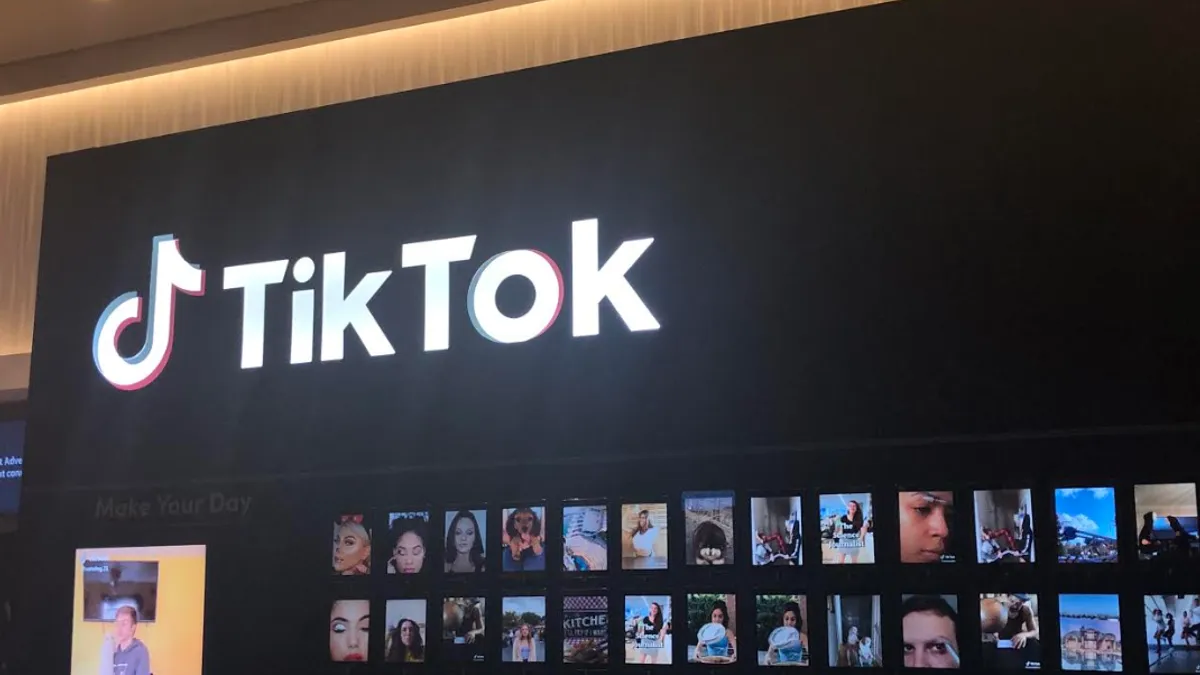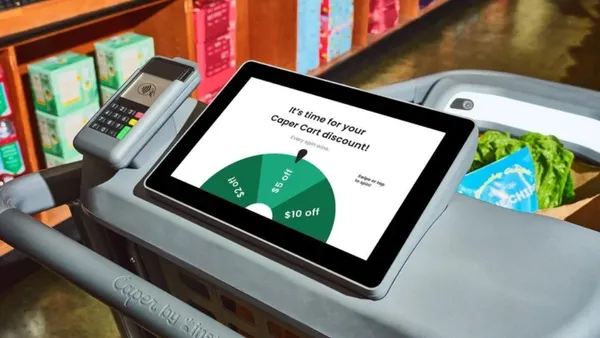Brief:
- President Trump tentatively approved a deal for Oracle and Walmart to partner with Chinese technology giant ByteDance on creating a U.S. company to run popular social video app TikTok, according to multiple media reports. As a result, the Department of Commerce delayed for one week a ban on TikTok downloads that was set to start on Sunday, giving it more time to review the agreement, the federal agency said in a statement.
- Oracle said in a statement that it will own 12.5% of a new company called TikTok Global and provide secure cloud computing services for the app. Walmart issued a statement saying it would buy 7.5% of TikTok Global, and provide e-commerce, fulfillment, payments and other services to the company.
- Potentially putting an end to a months long saga about the popular app's future in the U.S., the new TikTok Global will meet a U.S. government requirement that the company have majority American ownership, The Wall Street Journal reported, citing people familiar with the deal. The exact structure of the deal is still unclear, with ByteDance thought to be taking 80% ownership of the new company, but because U.S. investors already own about 40% of ByteDance, this will tip U.S. ownership of TikTok Global into the majority, one source told the Journal.
Insight:
The Trump administration's tentative approval of a deal that alleviates its concerns about TikTok's threat to national security could be a positive development for marketers that want more choice in digital and social platforms for advertising and e-commerce. With Oracle and Walmart's backing, TikTok Global has the potential to develop into a formidable marketing and e-commerce platform that engages a broad audience and is a viable alternative to platforms like Google, Facebook and Amazon that currently dominate the U.S. digital ad market.
Part of TikTok's appeal to Oracle and Walmart is its quickly growing scale, with the platform having reached 100 million users in the U.S., many of whom are Generation Z consumers that are elusive to traditional media channels like linear TV. Amid a rise in social media usage during the coronavirus pandemic and ongoing concerns around Facebook's content policies, TikTok has also been attracting a number of big name brands and is an important focus for influencer marketing campaigns, which have taken on new resonance during the pandemic.
Walmart's involvement in the creation of TikTok Global arrives as the retailer seeks to build out its e-commerce platform to rival Amazon's. Walmart said in a statement that it expects the deal to help the retailer expand its reach, cater to omnichannel shoppers and build key channels like its third-party marketplace, fulfillment and advertising sales.
Online shopping has surged during the pandemic, driving a 97% gain in Walmart's U.S. e-commerce revenue in Q2 from a year earlier, easily outpacing the 9.3% gain in same-store sales, per the retailer's quarterly earnings announcement. As the retailing giant expands online ordering, home delivery and curbside pickup services, it can provide a more robust underpinning to TikTok's e-commerce features.
TikTok's push into e-commerce has included a collaboration with Ntwrk, a home shopping network targeting Generation Z, and an integration with Teespring to let influencers sell branded merchandise through their TikTok channels. After testing shoppable video links last year, TikTok piloted an advertising format with a call-to-action button to link marketers to social influencers. Levi's was among the first brands to add "Shop Now" buttons to let TikTok users buy products shown in its shared videos.
While the machinations of TikTok Global's ownership structure are complicated, the biggest stated consideration for the Trump administration is preventing data about U.S. citizens from being shared with China's government. According to the proposed arrangement, Oracle will host the data to prevent it from being transferred outside the country. To satisfy critics who are concerned that TikTok 's data protections are inadequate, Oracle will have to demonstrate that its security measures will prevent data sharing or face a future crackdown. The new company would also work towards an initial public offering that would put more of its ownership into U.S. hands, in attempt to further alleviate concerns over who access to TikTok's rich data trove.
Faced with the possibility that TikTok could be banned, some advertisers may have been avoiding committing to the platform, but this could change now that a deal looks imminent, setting TikTok up for further growth.














